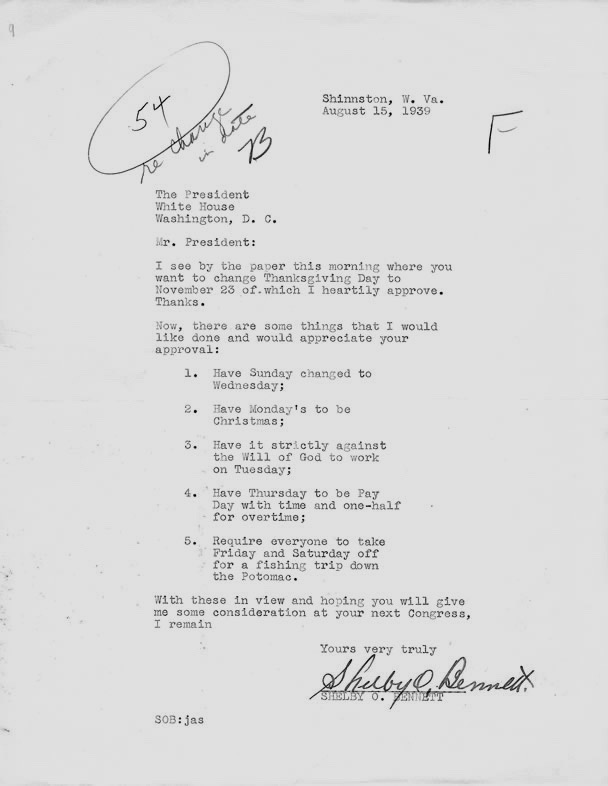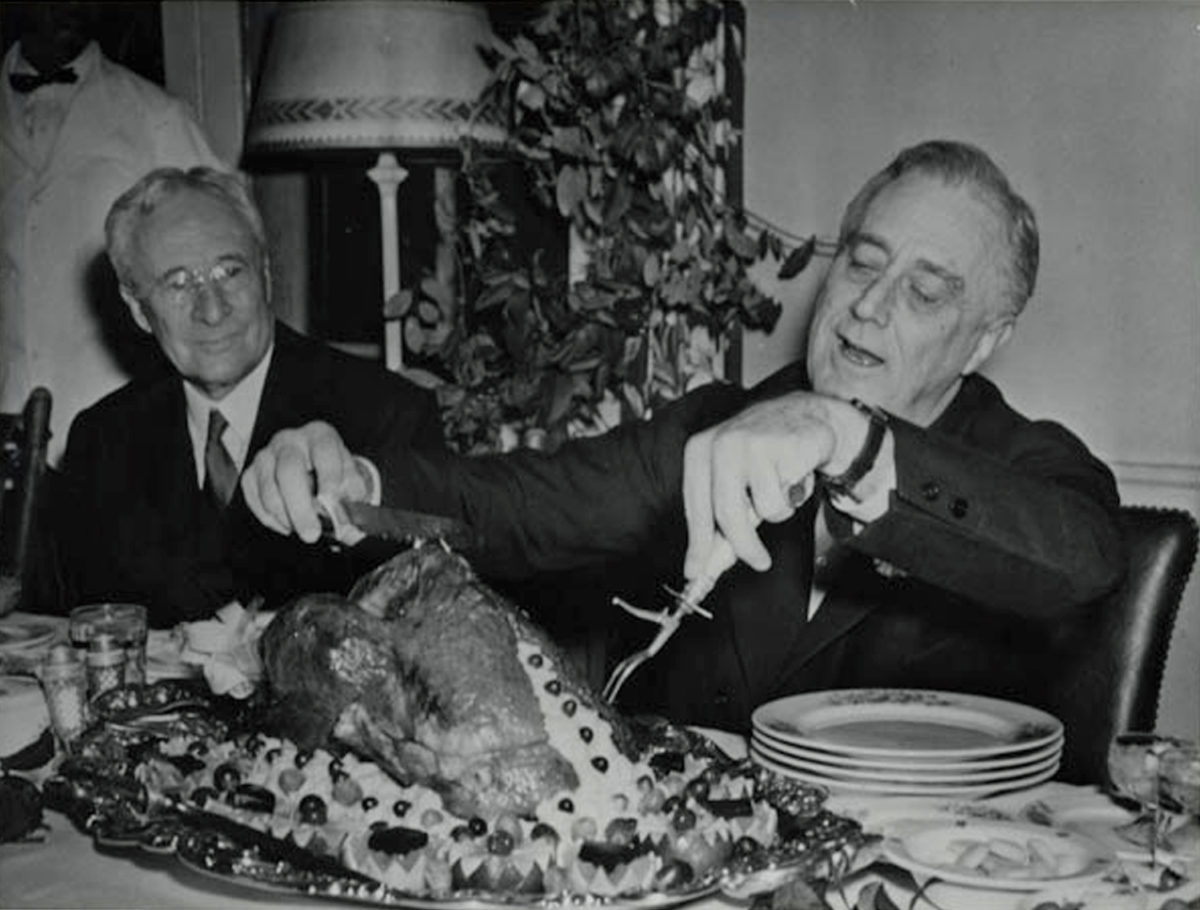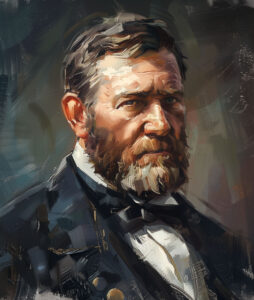On November 26, 1789, President George Washington issued a proclamation naming that Thursday a “Day of Publick Thanksgivin.” In 1863 this date was codified by President Abraham Lincoln’s proclamation that Thanksgiving would be commemorated each year on the last Thursday of November.
It would remain so for 56 years until 1939, when the last Thursday fell on the last day of the month. Coupled with the fact that the United States was still in the throes of the Great Depression, business leaders were concerned that Americans wouldn’t want to start shopping for the holidays until after Thanksgiving. (Unless you’re one of those people who start playing Mariah Carey in November. I’m looking at you.) Worried that the shortened shopping season would hurt retail sales, business leaders, including Lew Hahn, the general manager of the Retail Dry Goods Association, lobbied the president to make the holiday one week earlier. President Franklin D. Roosevelt listened, and in August 1939 he issued a Presidential Proclamation that moved Thanksgiving to the second to last Thursday of November.

This seemingly innocuous act sent the nation into a tizzy. Alf Landon, the former governor of Kansas, ranted to Time, “Another illustration of the confusion which his impulsiveness has caused so frequently during his administration. If the change has any merit at all, more time should have been taken in working it out…instead of springing it upon an unprepared country with the omnipotence of a Hitler.”
In a letter sent to the White House, Robert Benson of Groton, South Dakota went as far as to remind Roosevelt, “you must remember we are not running a Russia[n] or communistic government.”
Sure, you can see the clear comparisons here: one more week of shopping for the holidays versus the policies of the Final Solution and Collectivization. Refreshing to see that political discourse has not changed.
At the time, states were split on whether to heed the proclamation—22 went along with Roosevelt, 23 refused, and two states (Texas and Colorado) observed both dates. Mississippi never decided.
In 1941, after two years of backlash, Congress declared that the fourth Thursday in November would be the legal “Thanksgiving Day.” This would be the last time Roosevelt ever attempted to give Black Friday shoppers some extra time.
*A 1941 Commerce Department survey noted that there had been no significant change in retail sales after moving Thanksgiving to a week earlier. Thanks, capitalism.





